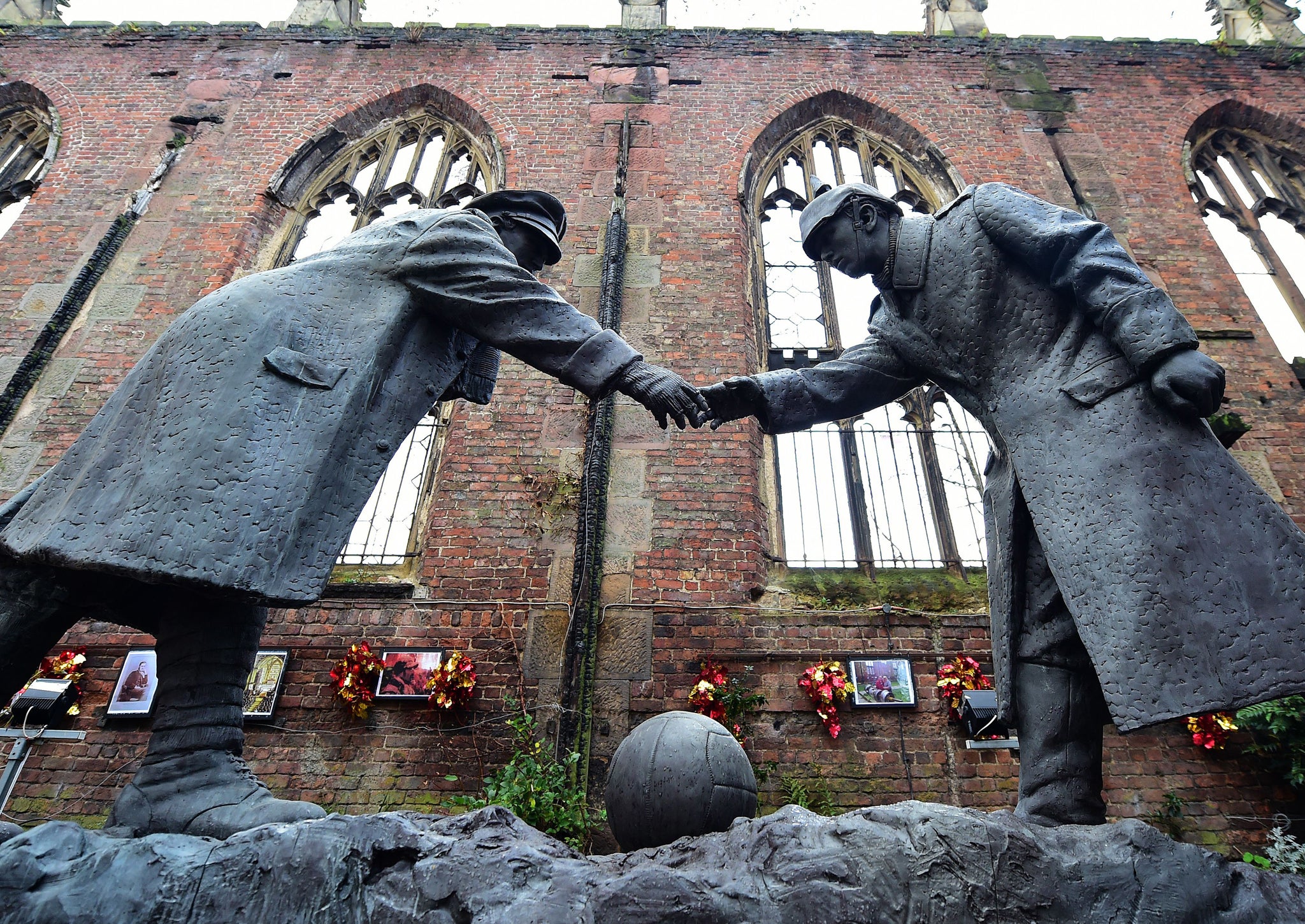The Independent's journalism is supported by our readers. When you purchase through links on our site, we may earn commission.
It's been 100 years since the Christmas Truce, but football is still changing the world
Whether it's a simple kickabout or a high-stakes match watched around the world, football's ability to bring people together is inspiring

Your support helps us to tell the story
From reproductive rights to climate change to Big Tech, The Independent is on the ground when the story is developing. Whether it's investigating the financials of Elon Musk's pro-Trump PAC or producing our latest documentary, 'The A Word', which shines a light on the American women fighting for reproductive rights, we know how important it is to parse out the facts from the messaging.
At such a critical moment in US history, we need reporters on the ground. Your donation allows us to keep sending journalists to speak to both sides of the story.
The Independent is trusted by Americans across the entire political spectrum. And unlike many other quality news outlets, we choose not to lock Americans out of our reporting and analysis with paywalls. We believe quality journalism should be available to everyone, paid for by those who can afford it.
Your support makes all the difference.A century since the outbreak from the First World War, there has been heightened interest in the iconic Christmas Truce when British and German troops laid down their weapons.
Which side initiated the Truce will forever be unresolved, but it clearly wasn’t planned. It was sparked by spontaneous acts of restraint, respect and basic human decency.
Soldiers stopped to bury their fallen comrades, exchange treats from home, and yes, have a kickabout. And that is well worth remembering today.
Because amidst the chaos and carnage of the most brutal conflict that had ever been known, it was football that was able to break through, and do what our politicians weren’t able to.
The truce football matches are all the more remarkable given footballs were officially banned on the frontline. It is just one example of how our national game was woven into the fabric of a war that changed Britain forever.
There are stories of soldiers who kicked footballs into No Man’s Land before they went over the top. Back at home, there was a boom in women’s football. Huge crowds turned out to watch teams of female factory workers when the Football League was suspended.
And then there is the story of the Hearts of Midlothian team. Hearts were top of the league and looked destined for the title. Then 100 years ago this month, the club’s chairman brought 800 new army recruits, led by the players, out onto the pitch at Tyncastle on a matchday.
This was at a time when some were criticising football for keeping young men away from the frontline. Sixteen Hearts players signed up to go to war to set an example.
And they weren’t alone. There were more than 5,000 professional footballers in Britain when war broke it. Around 2,000 hung up their boots and joined up.
Many of them formed the famous ‘Footballer’s Battalion.’ It included men like Walter Tull – the former Spurs player who became the first black officer in the British Army. And they were joined by thousands of supporters from the terraces.
Seven members of that Hearts team never returned to Scotland. We must never forget them, and all those for served and made the ultimate sacrifice.
But a century on, we should remain hopeful and optimistic about what the Christmas Truce represents in the 21st century.
It reminds us that football, and sport, has the power to change the world. It has the power to unite people in a way that little else does. It doesn’t matter if you’re British, French, German or anything else – it speaks to all of us in a language we can understand. That was true 100 years ago, and it’s still true today.
Think how the guns fell silent over Baghdad in 2004, as everyone stopped to watch Iraq beat Portugal and win fourth place at the Athens Olympics.
Remember 2006, when the Ivory Coast was being plagued by civil war, and the difference made by Didier Drogba and the national team when they dropped to their knees on television and pleaded for peace.
Or the tense stand-off in Crimea earlier this year that was defused when Ukrainian troops began playing football in front of the bemused Russians forces.
And then there's the countless projects in our communities and across the world, where football is so often that hidden social worker - educating, building bridges, helping to cure deadly diseases, and creating a better society.
Football and footballers in 2014 have changed a lot since 1914. But as we walk into 2015, we should be confident that the spirit of the Christmas Truce will endure well into the future.
Dan Jarvis MP is Labour’s lead on the First World War centenary. Jim Murphy MP is the Leader of Scottish Labour and author of '10 Football Matches that changed the world’
Join our commenting forum
Join thought-provoking conversations, follow other Independent readers and see their replies
Comments